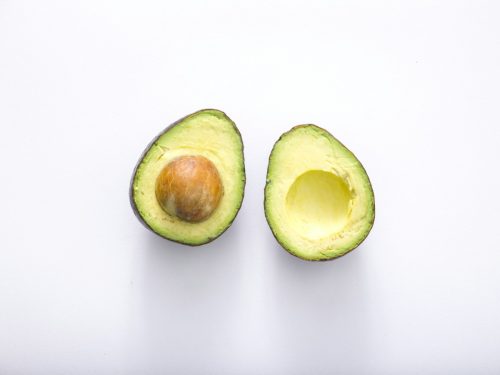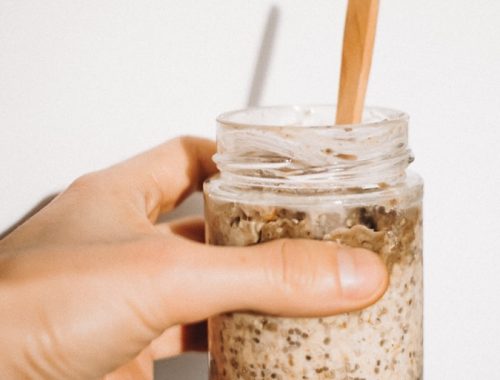
Guacamole Galore Recipe
Why Adding Avocados to Your Diet Can Boost Mental Health
When it comes to nutrition, we often think about the physical benefits of what we eat—better energy, improved fitness, or a healthier heart. But did you know that what you put on your plate can also have a profound impact on your mental health?
One superstar food that deserves a spot in your diet is the humble avocado. Loved for its creamy texture and versatility, avocados are more than just a trendy toast topper. They’re packed with essential nutrients that support brain function, stabilise mood, and enhance overall wellbeing.
From their rich supply of healthy fats to their impressive array of vitamins and minerals, avocados are a natural powerhouse for your mind and body. Whether you’re managing stress, seeking better focus, or simply looking to feel your best, this green gem can play a key role in supporting your mental health.
In this post, we’ll dive into the science-backed reasons why avocados are a must-have for mental wellness and share simple ways to incorporate them into your meals. Ready to give your brain the nourishment it deserves? Let’s explore!

Avocados contain alpha-linolenic acid (ALA), a plant-based omega-3 fatty acid. Omega-3s are known for supporting heart rhythm, reducing blood pressure, and preventing blood clots.
Health Benefits of Avocados
1. Nutrient Powerhouse: Avocados are brimming with essential nutrients, including heart-healthy monounsaturated fats, fibre, potassium, and vitamins such as C, E, K, and B-6.
- Potassium Avocados contain about 975 milligrams of potassium, which is more than a banana or sweet potato. Potassium helps keep your heart healthy and muscles working.
- Fibre One cup of sliced avocado can provide 10 grams of fibre, which is about 40% of your daily fibre needs.
- Folate One serving of avocado contains 10% of the recommended daily allowance of folate. Folate is important for brain growth and function, as well as cell division and creation.
- Vitamin E Vitamin E helps the body produce red blood cells and boost the immune system. It’s also an antioxidant that’s essential for skin and hair health.
- Magnesium Avocados contain magnesium, which is important for muscle contraction and relaxation, as well as bone health. The body needs magnesium to use calcium and potassium.
- Protein Avocados contain a small amount of protein, which contributes to your daily protein intake.
- Vitamin C Avocados contain 4% of the recommended daily value for vitamin C.
- Vitamin K Avocados contain vitamin K, which is an essential component of their high-nutrient profile.
2. Heart-Healthy Fats: Avocados are renowned for their high content of heart-healthy fats, which are primarily monounsaturated fats (MUFAS). These fats have a positive impact on cardiovascular health, decrease inflammation, and can also support brain function.
3. Antioxidants: Avocados boast an impressive array of antioxidants that combat oxidative stress and inflammation within the body. These antioxidants, along with phytochemicals present in avocados, play a crucial role in supporting cellular health and overall vitality.
4. Digestive Support: Avocados are a fantastic source of dietary fibre, which promotes smooth digestion, aids in gut health, and contributes to a healthy digestive system. Including avocados in your meals can help enhance your digestive well-being and alleviate gastrointestinal discomfort.
5. Healthy Skin: The vitamins and healthy fats in avocados contribute to radiant skin from the inside out. By incorporating avocados into your diet, you can nourish your skin, and combat signs of aging. Avocados contain omega-3 and omega-6 fatty acids, which create a film on your skin to increase water retention. Avocados also contain vitamins C and E, which help keep your skin moisturised and supple. Avocados also contain antioxidants such as B-carotene, lecithin and linoleic acid that help protect your skin from damage caused by free radicals.
Enjoy avocados in salads, smoothies (great frozen!), or spreads and dips like guacamole. They’re also a great substitute for butter or cream in recipes.
Simple Guacamole Recipe
Ingredients:
– 2 ripe avocados
– 1 small red onion, finely chopped
– 1-2 ripe tomatoes, diced
– 1-2 cloves of garlic, minced
– 1 lime, juiced
– Fresh coriander/cilantro, chopped
– Chopped shallots/green onion
– Salt and pepper to taste
Instructions:
1. Cut the avocados in half, remove the pit, and scoop out the flesh into a bowl.
2. Mash the avocados with a fork to your desired consistency.
3. Add the chopped red onion, shallots, diced tomatoes, minced garlic, lime juice, and coriander to the bowl.
4. Season with salt and pepper, and gently mix all the ingredients together.
5. Taste and adjust the seasoning as needed.
6. Serve the guacamole fresh with your favorite tortilla chips, tacos, or as a topping for various dishes.
Notes: While avocados are incredibly nutritious and beneficial for most people, there are certain groups who may need to limit or avoid them due to a specific health condition, dietary restrictions, or potential side effects.
- Latex-fruit Allergy
- Avocado Allergy
- People taking blood thinners due to their high vitamin K content
- Kidney conditions due to their high potassium content
- Individuals sensitive to FODMAPS
- Histamine Intolerance as avocados contain natural compounds that can trigger symptoms
References:
1. Fulgoni VL, Dreher M, Davenport AJ. Avocado consumption is associated with better diet quality and nutrient intake, and lower metabolic syndrome risk in US adults: results from the National Health and Nutrition Examination Survey (NHANES) 2001-2008. Nutr J. 2013 Jan 2;12:1. doi: 10.1186/1475-2891-12-1. PMID: 23282226; PMCID: PMC3545982.
2. Wang L, Bordi PL, Fleming JA, Hill AM, Kris-Etherton PM. Effect of a moderate fat diet with and without avocados on lipoprotein particle number, size and subclasses in overweight and obese adults: a randomized, controlled trial. J Am Heart Assoc. 2015 Jan 7;4(1):e001355. doi: 10.1161/JAHA.114.001355. PMID: 25567051; PMCID: PMC4333034.





